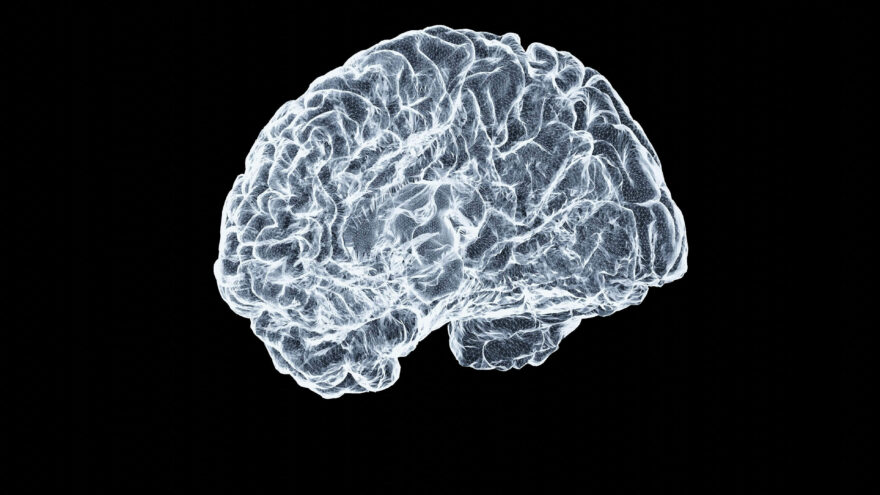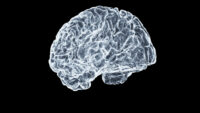How does nicotine affect the brain?
Discover how nicotine changes your brain, damages attention and cognition, and increases the risk of dementia and stroke. Learn how quitting smoking can reverse these effects and boost your mental health, naturally and easily, with Allen Carr’s Easyway.

Smokers and vapers are often told that nicotine helps them concentrate, manage stress, or feel sharper. But is this really true? Or is it just another trick played by the addiction?
At Allen Carr’s Easyway, we believe in exposing the illusions that keep people trapped—and there are few illusions bigger than the supposed mental “benefits” of nicotine.
In this article, we’ll examine how nicotine affects the brain: from attention and cognition to mental health, dementia, stroke, and brain volume.
We’ll show how the brain can recover after quitting—and how freeing yourself from nicotine is the greatest gift you can give your mind.
Let’s take a closer look at what’s really going on inside your head.
- What chemical does nicotine release in the brain and what is the effect?
- Effects of nicotine on attention
- Cognitive effects of nicotine
- Can your brain recover from smoking?
- Does quitting smoking help?
- Dementia
- Stroke
- Brain volume
- How does smoking affect you mentally?
- Discover Allen Carr’s Easyway program to quit your nicotine addiction
- Free videos and articles
- Other useful quit vaping articles & news
What chemical does nicotine release in the brain and what is the effect?
Nicotine mainly targets a powerful system in the brain: the dopaminergic system.
When you smoke or vape, nicotine reaches the brain within 10–20 seconds and binds to nicotinic acetylcholine receptors (nAChRs). This triggers a flood of dopamine, the brain’s “feel good” chemical.
Dopamine is linked to pleasure, motivation, and reward—but here’s the trick. The more you use nicotine, the more your brain rewires itself to rely on that artificial dopamine hit.
Eventually, natural dopamine production is downregulated, and the dopamine hit that smokers or vapers receive is actually bringing them back up to where a non-smoker or vaper is naturally. In fact, it is slightly less than a non-smoker or vaper and decreases over time.
That’s why smokers feel anxious, depressed, or unfocused when they haven’t had a cigarette. The “boost” isn’t really a boost at all—it’s a brief return to normality, followed by another dip.
“The pleasure of smoking is just the relief of the discomfort caused by the previous cigarette.” — Allen Carr
According to a 2010 review in Neuropharmacology, nicotine alters brain circuitry involved in emotion, impulse control, and cognition, particularly in the prefrontal cortex and hippocampus, which are crucial for memory and decision-making.
Allen Carr’s Easyway is a cognitive restructuring method that reverses this so that the user’s brain is back to where they were before they became a smoker or vaper.
Effects of nicotine on attention
Smokers often believe that nicotine enhances attention and focus. But this belief is largely based on relief from withdrawal.
When you’re addicted, each dose of nicotine relieves the agitation caused by the previous dose wearing off. This temporary relief is misinterpreted as improved concentration.
Studies have found that while nicotine might slightly improve reaction time, it also increases distractibility and reduces sustained attention, particularly in chronic users.
The longer the addiction lasts, the more attention networks in the brain are disrupted.
A study published in Frontiers in Pharmacology found that chronic nicotine use actually impairs cognitive flexibility and attention span, especially under stress.
The good news? These effects are reversible.
Cognitive effects of nicotine
Cognition is the set of mental abilities that includes memory, learning, reasoning, and problem-solving.
Nicotine interferes with all of these by:
- Reducing blood flow to the brain
- Creating oxidative stress and inflammation
- Disrupting neurotransmitter balance
- Impairing sleep (which is crucial for cognitive health)
A 2019 study in Addiction Biology showed that long-term smokers had significantly lower performance on cognitive tests involving working memory and executive function compared to non-smokers.
Some people may think that nicotine helps in the short term – but it’s damaging the brain’s long-term abilities.
Can your brain recover from smoking?
The good news is yes, and the recovery can be remarkable.
Brain imaging studies show that after quitting smoking, dopamine receptor function begins to normalise within weeks, and structural changes begin to reverse within months to years, depending on the length and intensity of addiction.
The brain is a plastic, dynamic organ—it can heal. But it needs one thing: freedom from nicotine.
You don’t need nicotine to feel calm, confident, or in control. That’s an illusion created by the addiction, and it disappears when you break free. Do you know what happens to the body when you quit smoking?
Does quitting smoking help
Quitting nicotine has profound benefits for mental and cognitive health:
- Improved mood and lower anxiety
Contrary to popular belief, quitting smoking reduces anxiety and depression over time. A study in BMJ found that quitting was associated with the same mood boost as antidepressants. Read more about smoking and stress - Better sleep
Without nicotine’s stimulating effects and withdrawal cycles, sleep becomes deeper and more restorative. Read more about how to have a good night’s sleep - Sharper focus and memory
Studies show significant gains in cognitive performance as early as 12 weeks after quitting.
And perhaps most importantly, quitting slows cognitive decline and reduces the risk of dementia and stroke (see below).
You don’t lose anything when you quit smoking. You regain your natural mental clarity, balance, and strength. What are the effects of nicotine addiction?
Dementia
Nicotine use is closely linked with a higher risk of dementia, particularly vascular dementia and Alzheimer’s disease.
- Smoking increases oxidative stress and blood vessel damage, both of which accelerate brain ageing.
- A study in The Lancet Neurology identified smoking as one of the top preventable risk factors for dementia worldwide.
- Quitting smoking, especially before midlife, significantly lowers the risk of cognitive decline later in life.
What’s more, brain scans show that ex-smokers have more preserved brain volume and less white matter damage than current smokers of the same age.
Stroke
Smoking is one of the leading causes of ischemic stroke and haemorrhagic stroke, both of which can lead to severe brain damage and disability.
Nicotine and carbon monoxide:
- Constrict blood vessels
- Increase blood pressure
- Promote clot formation
- Damage the lining of arteries
This toxic combination makes smokers 2–4 times more likely to suffer a stroke than non-smokers.
The good news is that quitting smoking cuts stroke risk in half within 2 years, and the risk continues to decline over time.
Freedom from nicotine isn’t just a gift to your lungs or your wallet—it’s a life-saving gift to your brain.
Brain volume
Smokers have been shown to have reduced gray matter volume in areas responsible for decision-making, self-control, and emotion regulation.
A 2021 study published in Biological Psychiatry found that chronic nicotine use was associated with shrinkage in the prefrontal cortex, hippocampus, and amygdala—regions critical to mental function.
Worse still, the longer the addiction persists, the more pronounced these changes become.
The brain can begin to regain volume after quitting – but the earlier you quit, the more you preserve.
How does smoking affect you mentally?
Mental health and nicotine addiction are deeply intertwined.
Smokers are more likely to suffer from:
- Depression
- Anxiety disorders
- Bipolar disorder
- Psychotic episodes
The illusion is that nicotine helps manage these conditions. The reality is that it fuels them. How long does nicotine stays in your system?
The withdrawal-relief cycle keeps smokers trapped in a mental rollercoaster, brief relief followed by increasing anxiety, irritability, and low mood.
Discover Allen Carr’s Easyway program to quit your nicotine addiction
You might be thinking, “This sounds great—but quitting is hard.”
That’s what the addiction wants you to believe.
But Allen Carr’s Easyway is different. We don’t use scare tactics, substitutes, or willpower. We remove the desire to smoke or vape by helping you understand the addiction and dismantle it.
- No willpower required
- No withdrawal pain
- Immediate results for most
- Scientifically proven (Two independent randomised controlled trials, approved by NICE in UK, Belgium & German Governments and The World Health Organisation)
Choose the Right Program for You
- Live Seminars – Real-time live interaction with a trained facilitator either at a center or online.
- Video Programs – Go at your own pace with pre-recorded expert guidance.
We’ve helped over 50 million people across the globe. You can be next.
“It’s not about quitting smoking—it’s about being free.” – Allen Carr
Take your first step toward a smoke-free life today and learn more about our programs.
Free Online Quiz
Not sure if you’re ready?
Worried about finding it difficult?
We can help.
Take a few minutes to fill out our online consultation and we will get back to you with our personalised recommendation.
Go on, start your journey to freedom today!






